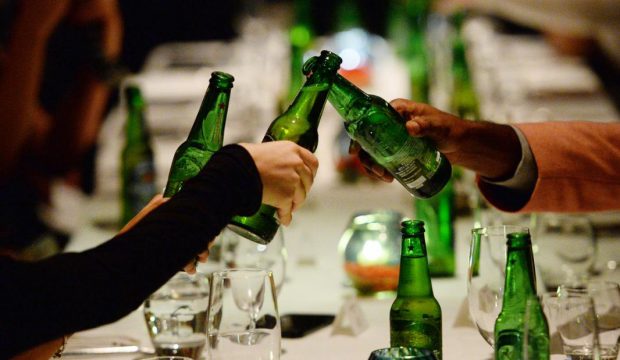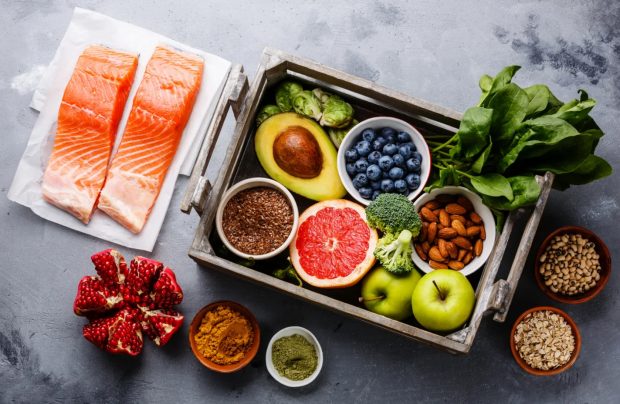Many people, having realized the dependence on their addictions – alcohol or drugs, undergo long-term rehabilitation. Its goal is a complete rejection of hazardous substances, a transition to a healthy lifestyle, and body restoration. Proper nutrition plays a significant role in this process, since people addicted to alcohol or drugs, often have a lack of body weight. Choosing a rational diet for them and observing it is also a step towards full recovery.
The basis for the alcoholism treatment through proper nutrition is reducing the body’s addiction to simple carbohydrates, which, like alcohol, quickly increase blood sugar. They are found in white bread, pasta, rice, pastries. Refined carbohydrates contained in these products can affect blood sugar levels as well as alcohol. In other words, their use can provoke a desire to drink.

Moreover, the body of alcoholics reacts in a special way to the intake of sugar in their blood, producing excess insulin, as a result of which a large amount of sugar is eliminated from the blood. Low sugar (hypoglycemia) can cause feelings of anxiety, irritability, and an acute desire to return the required amount of sugar back to the body. So people often choose alcohol as a way to return a desired amount of sugar.
That is why if you have to find an inpatient drug rehab, search ‘drug rehabs near me’ and choose the facility which provides specialized services and support with addiction recovery. Pay attention to the nutrition plan offered there. A lot of rehab facilities understand the importance of proper nutrition during rehabilitation and provide different plans, according to a patient’s diet, illness, and preference.
What is a Restorative Diet for Alcoholics?
The diet during alcohol detox emphasizes food with a high content of protein and amino acids Substitution of proteins with simple carbohydrates helps to overcome the craving for sugar. Meanwhile, amino acids are good for the brain.
The chemicals produced during the absorption of alcohol are similar to dopamine and serotonin, which cheer up. This is where this giddy feeling comes from when we start drinking. This feeling, together with a huge rush of sugar in the blood, gives us a temporary surge of strength and fun.
The tragedy is that alcohol, bringing a temporary sense of joy, subsequently interferes with the natural appearance of this feeling. The result is clear: depression, anxiety, unstable mood, and constant desire to drink to feel better.
In this case, proper nutrition is aimed at restoring the natural flow of chemicals responsible for feelings of joy and satisfaction. But since everyone has a different metabolism, an individual approach is important in each case. For example, a blood test can determine what the body needs most: serotonin, dopamine, GABA, or endorphins.
Another key element in a restorative diet is fat. Unfortunately, thanks to many “experts”, fat has a bad reputation. Foods containing saturated fat are actually quite healthy. The omega-3 fatty acids found in fish (especially salmon and sardines), flaxseed, walnuts, and sesame are incredibly important. The process of burning fat allows you to maintain a stable level of sugar in the blood, and Omega-3 increases the level of dopamine in the brain.
How to Create a Proper Nutrition Program
In the formation of a diet in alcoholism treatment, an important role is played by food additives selected individually for each person. For example, the amino acid glutamine is needed to suppress the urge to drink during abstinence. Most of the supplements that help improve the performance of neurotransmitters contain DL-phenylalanine, which promotes the release of endorphin and tyrosine – mood-enhancing substances. 5-hydroxytryptophan (5-HTP), which helps the body secrete serotonin, is also well received.

Since alcohol abuse greatly depletes the body, depriving it of the necessary vitamins and minerals, multivitamin or mineral supplements, as well as complexes of B vitamins, will be especially useful.
Vitamin B-6, thiamine, and folic acid are the most common nutrients lost in alcohol abuse, according to the study. Lack of these important nutrients can cause serious consequences, including anemia and various neurological problems. Excessive alcohol consumption also leads to the loss of fat-soluble vitamins, which are critical to good health. For example, excessive alcohol consumption affects the body’s ability to convert vitamin A (which is necessary for healthy skin, bones, eyes, and the immune system) into its active form, since this process requires the presence of the same enzymes that metabolize alcohol.
Women should take calcium supplements, as excessive alcohol consumption increases the risk of developing osteoporosis – even women who do not drink alcohol have many more risks for developing this disease than men.
Alcoholism also leads to the beneficial amino acids shortage, which are necessary for repairing the liver and neutralizing free radicals, which can lead to cell death and more serious diseases like cirrhosis.
The proper nutrition program for alcoholics involves the rejection of all addictive substances. They include caffeine, nicotine, and sugar. It goes against the traditional methods of treating alcoholism, which support the substitution of alcohol for other things. For example, at most AA meetings, participants are offered sweets and cookies. Switching to another addiction is the wrong option. At first, alcoholics will feel better, but in the end, they will still break down and be even in a worse condition.
What Your Diet Checklist Should Look Like
It is always better to seek the help of qualified doctors: narcologists and nutritionists. If you find a rehab, consult the doctors there. Only specialists will be able to:
- take into account all available pathologies, age category, individual intolerance to certain products;
-
prepare an individual diet program that is optimal for a particular patient;
-
adjust the diet in accordance with the improvement or deterioration of the patient;
-
offer different options for diets, and choose the ones that are most suitable for the patient.
Naturally, the treatment of an alcoholic does not consist of only a diet. It must be carried out comprehensively. It is necessary to draw up not only a competent diet but also to carry out a number of therapeutic measures using various drugs, psychological techniques, and physiotherapy. Only then will the result be as positive as possible. So better choose a facility carefully, just a random nearest rehab may not be the best option for you. If you don’t know how to find a Native American Addiction Facility, there are a lot of articles on this topic on the internet.
However, there are some common tips which will harm nobody. First, the food should be fresh and healthy. Eat fresh fruits and vegetables as much as possible. Choose whole-grain foods. Eliminate or minimize foods containing sugar and caffeine. Limit your intake of red meat. Replace it with dishes of grain and legumes.
Here is an example composition for a good anti-alcohol restorative diet:
Protein – 25%
Carbohydrates – 45%
Fat – 30%
Read More:
How you get a hangover: symptoms and preventive measures
What to expect and how to deal with hangover?
IV Therapy for a better health: how it works and what you need to know
8 ways to eat healthy without feeling deprived

